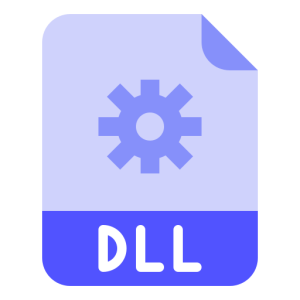Description
OpenCL.DLL
OpenCL.DLL is a dynamic link library (DLL) file that is a critical component of the OpenCL framework. OpenCL, which stands for Open Computing Language, is an open standard that allows programmers to develop applications that can run on heterogeneous computing platforms, including CPUs, GPUs, and other accelerators. The DLL file contains the necessary functions, routines, and resources to enable the execution and functioning of applications that utilize the OpenCL framework.
The OpenCL.DLL file plays a vital role in facilitating the interaction between applications and the underlying hardware devices. It provides a standardized interface for communication and coordination between the software and the heterogeneous hardware, allowing for efficient parallel execution of tasks across multiple computing devices.
OpenCL.DLL is typically required by applications that utilize the OpenCL framework for high-performance computing, such as scientific simulations, image and video processing, and machine learning. The DLL file allows these applications to take advantage of the full computational power of modern GPUs and other specialized hardware accelerators.
Purpose and Functionality
The OpenCL.DLL file serves several crucial functions within the OpenCL framework, including:
- Device Discovery and Management: The DLL enables applications to discover and manage the available OpenCL-compatible devices, such as GPUs and CPUs, on the system. It provides functions for querying device capabilities, allocating memory on the device, and managing data transfers between the host (CPU) and the device.
- Kernel Execution: OpenCL allows developers to write programs called kernels that execute in parallel on the available hardware devices. The DLL provides the necessary functions for compiling and executing these kernels on the target devices, and for managing the execution flow and synchronization between kernels and the host application.
- Memory Management: The OpenCL.DLL file provides functions for efficient memory management within the OpenCL framework. It allows applications to allocate and deallocate memory on the device, as well as transfer data between the host and the device memory.
Common Use Cases
OpenCL.DLL is commonly used by applications that require high-performance computing capabilities and can benefit from parallel execution on heterogeneous hardware platforms. Some common use cases include:
- Scientific Simulations: Applications that perform complex scientific simulations, such as weather forecasting, fluid dynamics, or molecular dynamics, often utilize OpenCL to harness the computational power of GPUs for accelerated calculations.
- Image and Video Processing: OpenCL can be used to accelerate image and video processing tasks, such as image filtering, video transcoding, or computer vision algorithms. The OpenCL.DLL file enables efficient execution of these tasks on GPUs or other specialized hardware.
- Machine Learning and Artificial Intelligence: OpenCL is commonly used in machine learning and AI applications to accelerate training and inference tasks. The DLL file allows developers to leverage the parallel processing capabilities of GPUs to speed up complex computations. +

